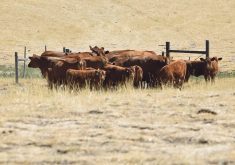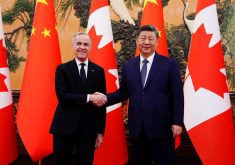Greg Porozni farms at Willingdon. He wrote this letter to the editor of the Manitoba Co-operator in response to an editorial addressing Danny Penner’s opinion piece on the opposite page.
Iam replying to your recent article regarding the farmer’s voice splintered. I am a grain farmer from Alberta growing wheat, canola and peas and have been involved in the canola and newly formed wheat commission in this province for the past 20 years. I take exception to your comments because I live and actively participate in this sector and can honestly say that the lobby and investment efforts in the grains and oilseeds sector create value to producers.
Read Also

Deep cuts to ag research jeopardize Canada’s farming future
The huge cuts to ag research at Agriculture Canada are being widely panned by farm organizations, but there seems to be little hope of the government reversing its decision.
CFA (Canadian Federation of Agriculture) has always poorly represented the grains and oilseeds sector. It is funded by supply management to a large extent and that’s who it represents, especially at the WTO trade talks. I know because I have attended the last three World Trade Organization negotiations and left every time wondering how CFA claims to represent all farmers.
You also claim that commodity groups have similar functions in research and market development. This is ridiculous when you compare canola, an oilseed crop, and wheat, for example. They are entirely different crops with completely different end uses. The canola industry works closely with all of industry i.e. the Canola Council of Canada, which I think you are well aware of yet fail to acknowledge. The Canadian Canola Growers Association, which is also based in Winnipeg, represents all growers throughout Canada and also does the administration for cash advances for all commodities. It is also a member of GGC (Grain Growers of Canada), which is based in Ottawa and lobbies on behalf of all grain and oilseed producers in Canada. The Alberta Wheat Commission is also a member, along with numerous other commodity groups throughout Canada.
GGC has never had a higher profile than now and has the ear of the minister of agriculture because it is proactive and looking for solutions, instead of protecting supply management, which CFA is primarily focused on.
The wheat and barley industry is currently working on forming national value chain councils similar to the successful CCC. Grains and oilseeds producers are represented better now in Ottawa than they have ever been because of unified lobbying by commodity groups represented by GGC. They share an office with CCC and CCGA to be efficient as well.
Finally checkoffs are not costing producers $20,000 per year; they are approximately $1.20/acre, therefore are approximately $6,000 on a 5,000-acre farm. This is an excellent return because it provides value to producers by investing in research, market development and lobbying efforts for the grains and oilseeds sector. And it is refundable for accountability.













